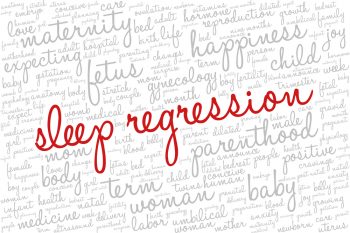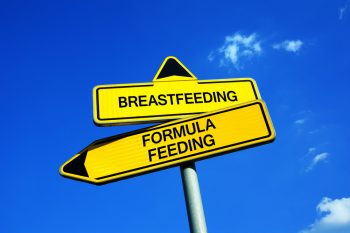Becoming a new parent can be overwhelming and filled with questions. One of the most common questions new parents have is how long should a newborn sleep without feeding.
We know that feeding is essential for a growing baby but sometimes, new parents can get lost with a schedule, especially in the middle of the night. Whether you are a new or expecting parent, it is essential to learn how often you should feed your newborn baby, how to deal with sleep regression, and how breastfeeding differs from formula-feeding.
How often should you feed a newborn?
Newborns require frequent feedings as their small stomachs can’t hold much milk. In general, a healthy, full-term baby should feed eight to twelve times a day, roughly every two to three hours, and allowing her/him to sleep as much as they want at night.
Feedings usually last 20 to 40 minutes per breast, and signs of hunger, such as lip-smacking, rooting, and fussing, should encourage feeding. How long should a newborn sleep without feeding? Eventually, babies will sleep for slightly longer periods, but still, a maximum of four hours between feedings.

How to handle sleep regression and how long should a newborn sleep without feeding
Sleep regression is a stage when a baby’s sleeping pattern changes from sleeping long and deep to waking up every few hours. Sleep regression is a normal part of a baby’s development but can have a significant impact on parents’ sleep patterns.
One reason for sleep regression is physical growth, and babies will need more milk, and they will need to feed more often. It is crucial to maintain a feeding schedule and offer as many feedings through the day and evening to avoid feeding from occurring only during the night.

Breastfeeding vs. formula-feeding
Breastfeeding has many advantages over formula-feeding but requires round-the-clock attention, especially during the early months. One of the essential benefits of breastfeeding is the liquid that the baby gets is filled with virus-fighting cells that the mother passes to her baby during feedings.
The mother’s milk contains the right balance of nutrients that the baby needs. Formula milk, on the other hand, is less nutritious than breast milk and requires bottles, pumps, and sterilization. Formula-fed babies may sleep longer between feedings than breastfed babies, but it’s essential to keep a feeding schedule and to know how long should a newborn sleep without feeding.

How long should a newborn sleep without feeding: the importance of feeding your newborn
Feeding is vital for babies’ growth and development, and it helps to build a bond between parent and child.
It is essential for parents to be aware of the signs of hunger, keep track of the number and duration of feedings, and notice any changes or concerns in their baby’s eating habits. Additionally, providing proper nutrition will help your baby get the best possible start in life.
How long should a newborn sleep without feeding ? In conclusion, becoming a parent is a rewarding but overwhelming task, and feeding your newborn is one of the most critical aspects of caring for a baby.
Knowing how often to feed your newborn, how to handle sleep regression, and the differences between breastfeeding and formula feeding can take some of the stress out of this exciting journey.
Remember to trust your instincts and listen to your baby’s cues. With these tips, you’ll handle feeding your newborn with more confidence and ease.


